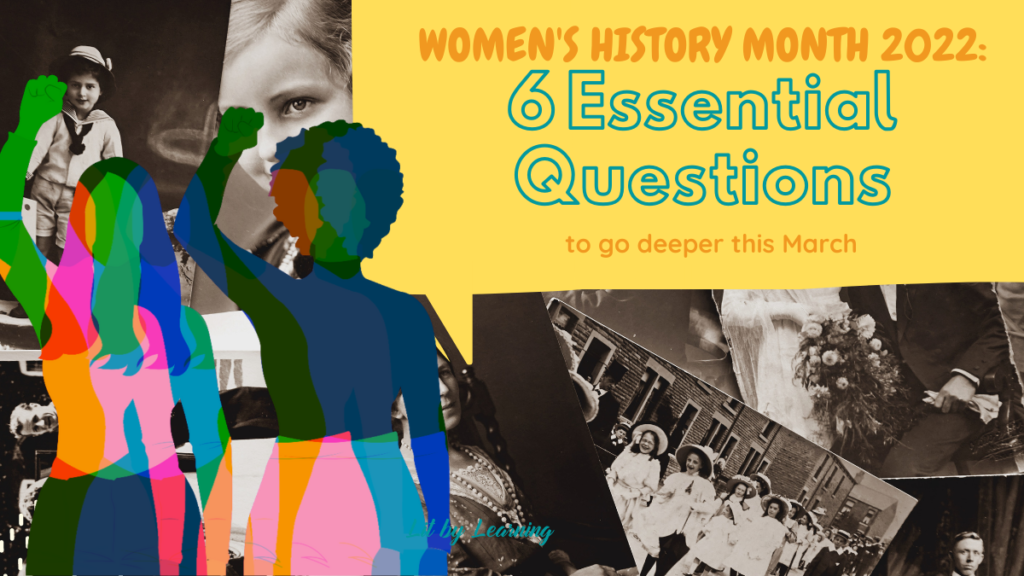
Are you looking for activities for Women’s History Month 2022? Or perhaps you’re wondering why we celebrate women’s history month in the first place? Here are 6 essential questions for you to explore in your classroom and beyond!
A note on the language in this post: The binary-centered words woman/women and man/men are used intentionally to reflect the vernacular surrounding Women’s History Month. Read about my complicated relationship with heritage months here!

What is an essential question?
An essential question is an unanswerable question that can hold up hours of investigation and debate. It is a question on which there are many potential viewpoints. Basically, an essential question is a question worth asking – and worth examining in your classroom!
This blog post is full of questions! It’s a brain dump, actually. My hope is that they can be a springboard for you – and your class! – to examine Women’s History Month a little deeper this March 2022.

1. Why do we celebrate Women’s History Month?
Why do we celebrate women? What is women’s history month history? What is the women’s history month origin? These are fabulous questions to explore with learners of any age! Be prepared for the follow-up questions: Why isn’t there a mens’ history month? What about ____?
Activities to explore this essential question:
- A Timeline
- An inquiry into the very first Women’s History Month
- Biography about the people who started Women’s History Month
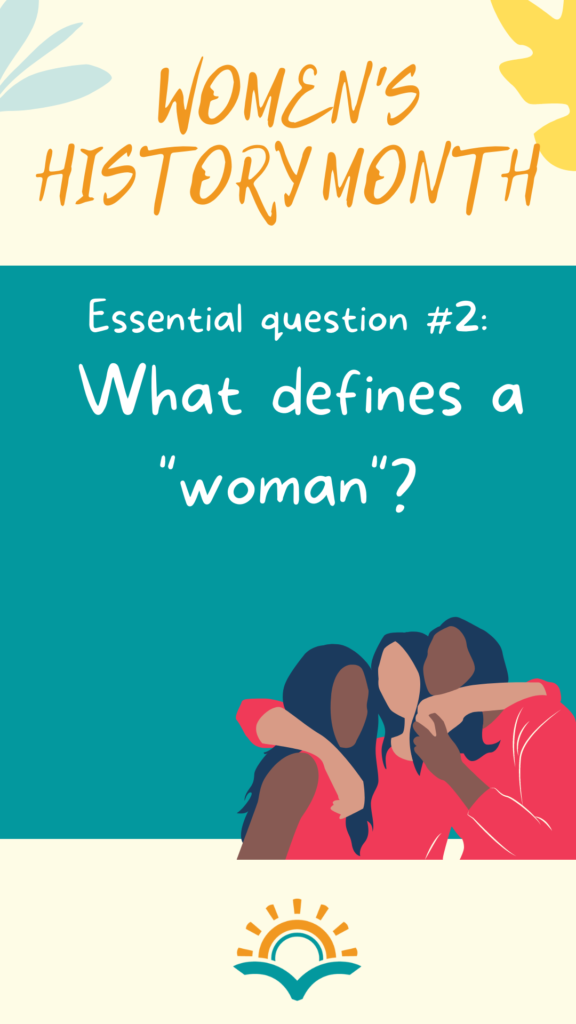
2. What defines a “woman?”
This essential question is <fire>. Subquestions include, “Who gets to decide who is or is not a woman?,” “How do varying cultures define womanhood differently?” and “What does OUR society say about what a woman is?
Activities to explore this essential question:
- Looking into the dictionary definition of woman; examining the connotative and denotative definitions of woman.
- Examining supposed “outliers:” folks who do not seem to match society’s definition of womanhood.
- Co-creating a definiton of womanhood as a class.
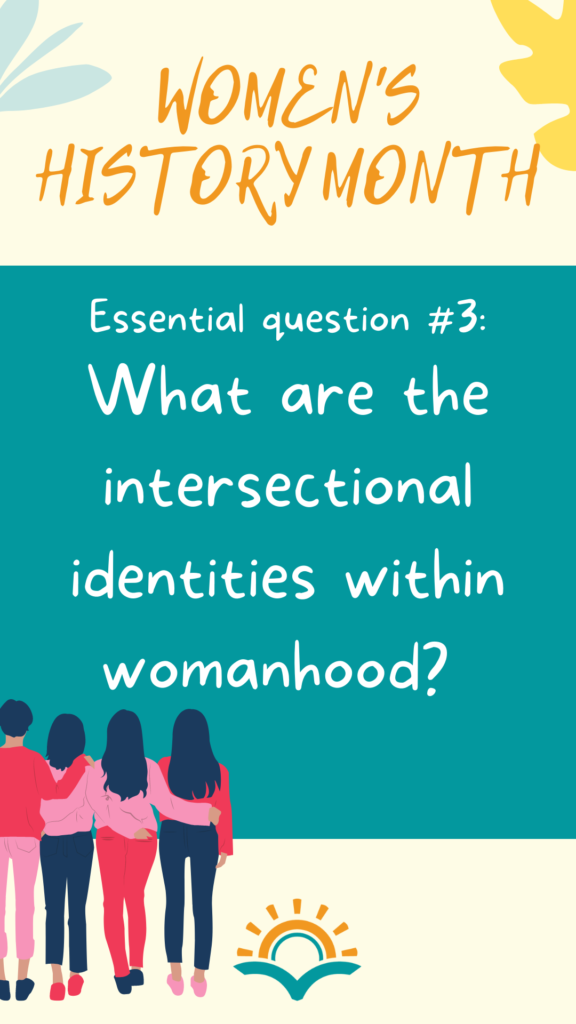
3. What are the intersectional identities within womanhood?
I could go on for days on this one. No one has ever simply been a woman: they have always been something else – some other identity – as well. Subquestions here are:
- “What is like to be a woman and ______?,”
- “How does (racial, cultural, age) identity affect who we consider to be a woman?”
- “(How) does what being a woman mean change with time, location, etc.?”
- “How do the intersections of multiple identities color what being a woman means?”
Activities to explore this essential question:
- Interviews with women in the lives of students
- Attempting to create a pie graph or other chart for the different identities within womanhood or within one woman: Which components get how much space? Why?
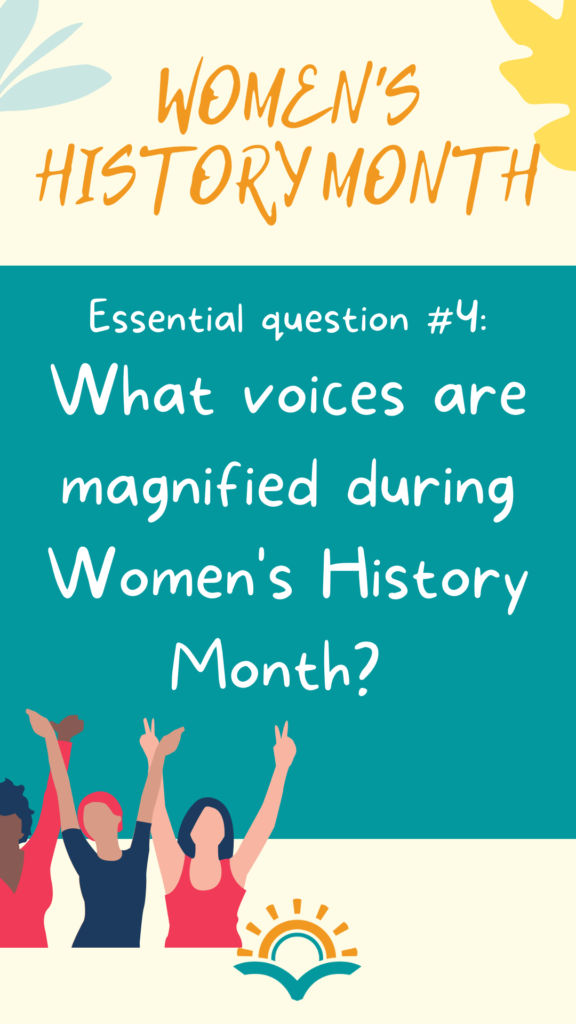
4. Which voices are magnified during Women’s History Month?
Examine patterns with this essential question. Which women do we hear about over and over again during March each year? “What are the favorite stories to tell?” Even better, “WHY might those be the most popular stories to tell?”
Activities to explore this essential question:
- Create a visual representation of which voices are amplified the most during Women’s History Month (think of a word cloud or graphical illustration)
- Rewrite the stories told about these particular women: What themes are there? What seems to be the message to readers? Learners?
- Write to examine why these stories may be the most centered: are they simple to tell? Do they have a message that most would agree with?
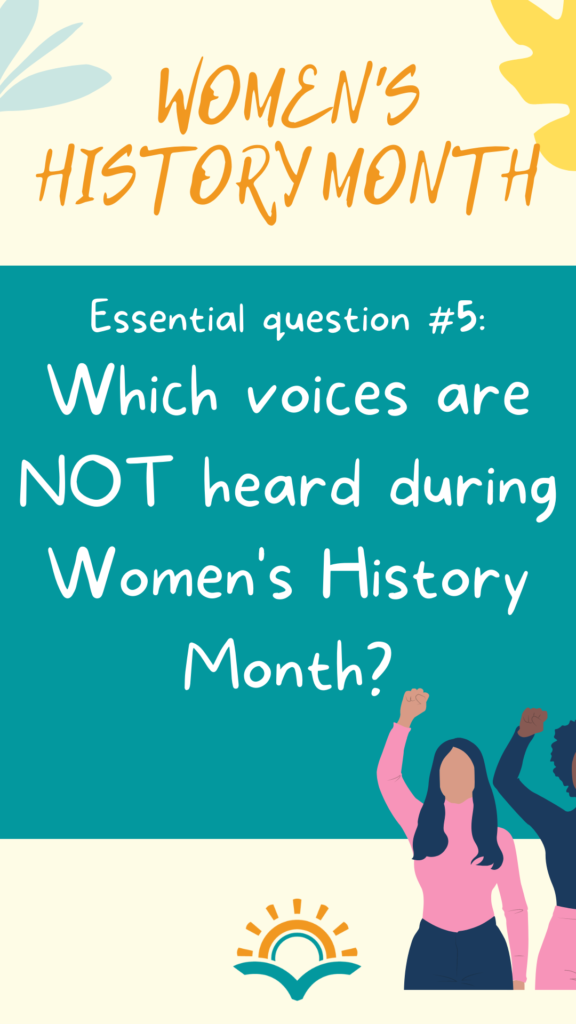
5. Which voices are not heard during Women’s History Month?
The counterpart to essential question #4, this one is just as – if not more – important. It’s a good one for any heritage or history month, really. It usually directs our focus to the ones most on the edges: the most marginalized, if you will. “Who, despite having a dedicated month to be celebrated, still gets left out of the narrative?” Going deeper: “WHY are these voices hard to hear?” and “Whose interests does it serve that these voices stay sidelined?”
“WHY are these voices hard to hear?”
“Whose interests does it serve that these voices stay sidelined?”
Activities to explore this essential question:
- Make an art piece capturing who is “at the table” – who is “in the room where it happens” – and who is left out?
- Actively seek out these marginalized women’s perspectives – conduct research.
- Craft interview questions of what you might ask women who are traditionally left out.
- Share a vision for what it could look like if all women’s voices were heard. What would it look like? What would it sound like?
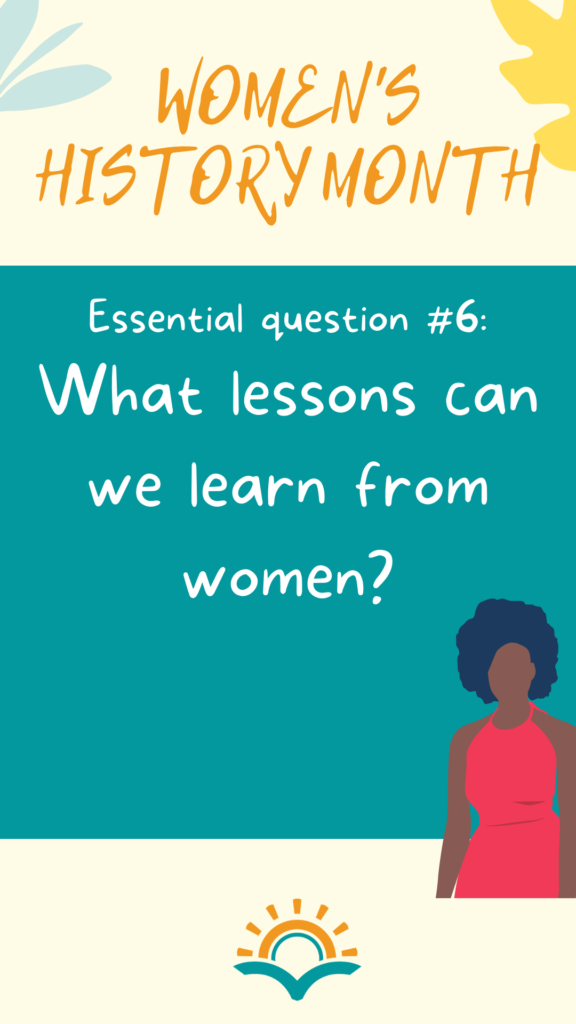
6. What lessons can we learn from women?
Imagine the richness of this conversation! Subquestions of this sixth and final Women’s History Month essential question include: “What lessons are women especially postured to teach us?” “Are there lessons that women can teach that men can’t?”
Activities to explore this essential question:
- Study a woman, famous or not, and write about a lesson you learned from them.
- Write a persuasive piece to convince the reader the most apt lesson that could be learned from a specific woman
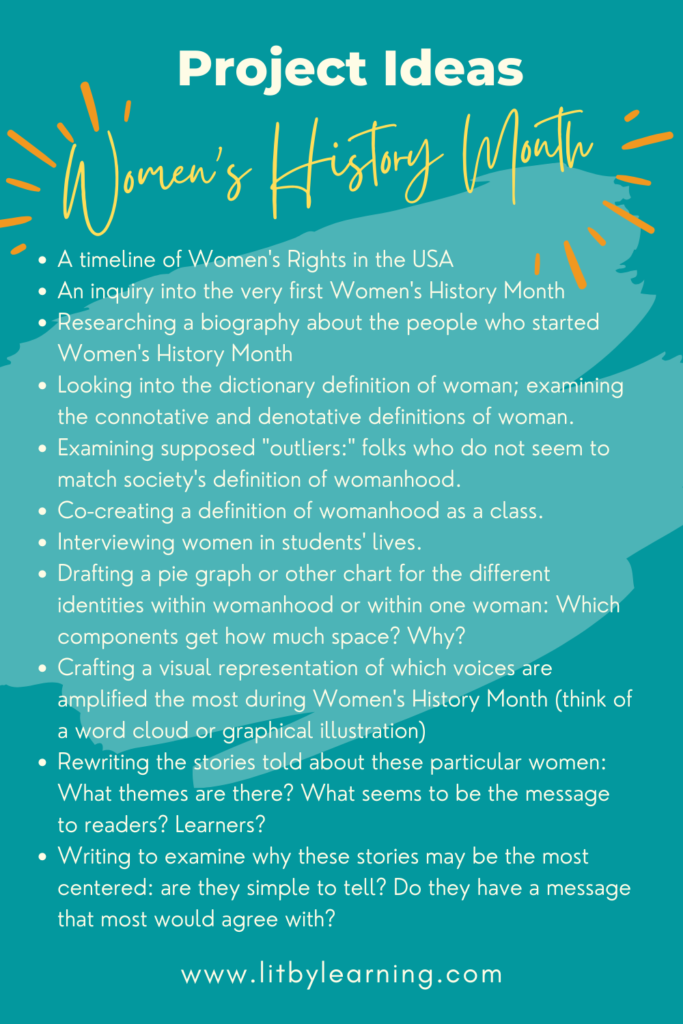
Women’s History Month: Continue exploring!
Make sure to check out these articles for more ideas!
- Teaching For Justice: A More Complete Women’s History Month
- Insight Into Diversity: Women’s History Month 2022
- New York Times: How do Women Feel about Women’s History Month?
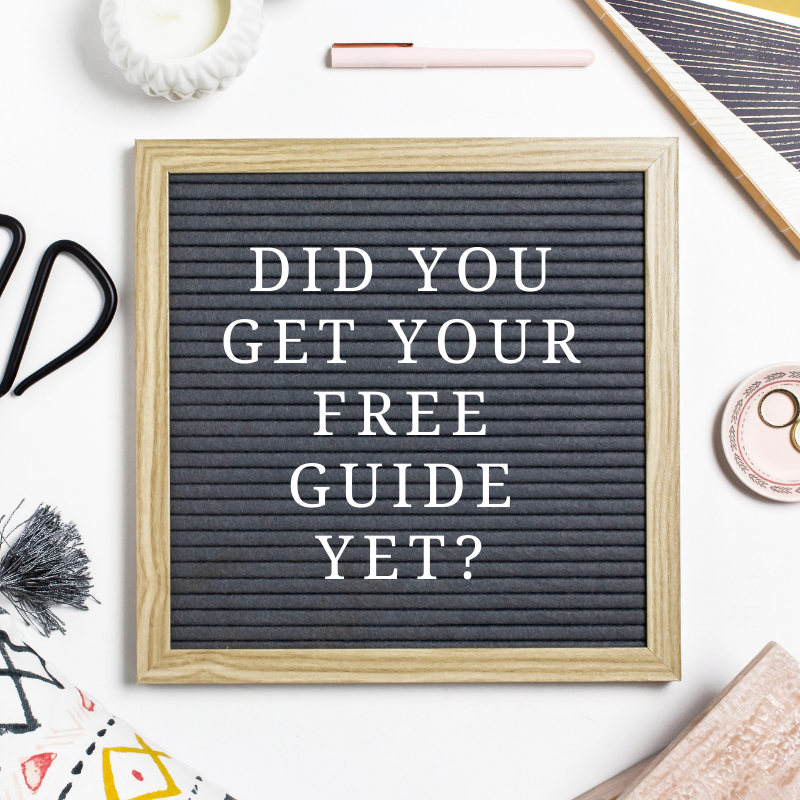
Women’s History Month: What did I miss?
What essential questions would you add to this list? How are you celebrating Women’s History Month? I love hearing your ideas!


